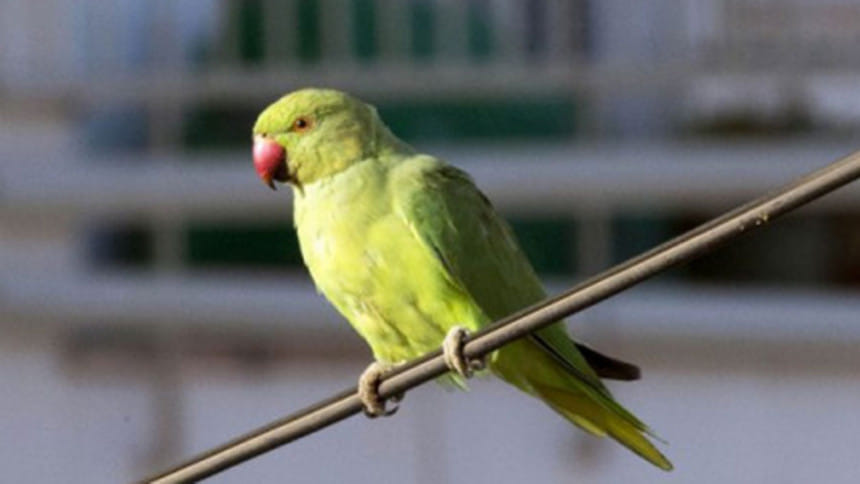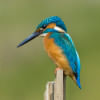Intelligent males may make female birds swoon: Study

Male birds are often the ones with the most vibrant feathers, or the most elaborate songs, but researchers said Thursday that what lady birds could really appreciate is a male who shows his intelligence.
The report in the journal Science aligns with one of Charles Darwin's old theories, which held that mate choice could contribute to the evolution of intelligence.
"Our study demonstrates that direct observation of cognitive skills can affect mate preference," said the study, authored by researchers at the Chinese Academy of Sciences in Beijing and at Leiden University in The Netherlands.
Researchers used 34 small Australian parrots, known as budgerigars, to test the notion that a suitor's smarts could outweigh style or songs.
A female bird was exposed to two similar looking males, in a cage in which she could only interact with one at a time. Prior study designs like this have shown that females tend to lean toward males with slightly nicer appearances, or more appealing songs.
Researchers could tell which male was preferred by the amount of time the female spent interacting with him.
Then, they swept away the lesser male to engage him in a special training session in opening a container filled with seeds.
The female -- and her preferred male -- received no such training, and were given open boxes of seed to eat from freely.
Next, the female was placed in a cage with a sealed box of seed, and was allowed to watch the trained male cleverly open his sealed box of seed.
She also watched the untrained male -- whom she preferred at first glance -- being unable to open his container.
After that, eight of the nine females changed their minds, apparently, and began spending more time in the cage interacting with the more capable box-opening male than they had before the experiment.
"This finding supports hypotheses, starting with that of Darwin, that sexual selection may affect the evolution of cognitive traits across animal species," said the study.
In other words, showing one's intelligence could help one gain more mates and better spread one's DNA on to future generations.
But experts caution that the notion is difficult to study in the animal world, particularly when complex behaviors like mating rituals are in play.
The researchers "offer convincing evidence that female budgerigars modified their mate preference in favor of trained males after observing them perform complex foraging tasks," wrote evolution experts Georg Striedter and Nancy Burley of the University of California, Irvine, in an accompanying Perspective article in the journal Science.
However, it's not entirely clear that the females appreciated the box-opening as a sign of intelligence, they added.
"The fact that females lacked the opportunity to perform the foraging task themselves suggests that they may have had little basis for understanding the exercise as a problem in need of a clever solution," they wrote.
"Instead, they might have attributed male success in opening the containers to superior physical strength."
In any case, the two outside experts praised the approach as having "considerable promise for advancing empirical research on mate choice for cognitive traits" and said it will likely "become an important tool for mate choice research in future studies."

 For all latest news, follow The Daily Star's Google News channel.
For all latest news, follow The Daily Star's Google News channel. 








Comments